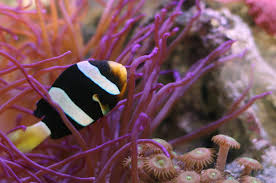Tea has been an integral part of Chinese culture for centuries, cherished not only for its refreshing taste but also for its numerous health benefits. In recent years, the consumption of Chinese fresh tea has gained recognition for its positive effects on elderly individuals. With the aging population growing globally, there is an increasing focus on promoting wellness and longevity, and Chinese tea plays a key role in enhancing the overall health of older adults. Fresh tea, carefully harvested and processed to retain its natural qualities, has been used in traditional Chinese medicine for its restorative properties. In this article, we will explore the various types of Chinese fresh tea that are particularly suitable for seniors, and how these teas can contribute to their physical and mental well-being.

Why Chinese Fresh Tea is Beneficial for the Elderly
The elderly population faces unique health challenges, including weakened immune systems, cognitive decline, joint pain, and digestive issues. Traditional Chinese medicine has long recognized the role of herbs and natural substances, like tea, in maintaining health and vitality. Fresh tea, especially varieties native to China, is packed with antioxidants, vitamins, and minerals that help support the immune system, improve circulation, reduce inflammation, and aid in digestion. Additionally, many Chinese teas are known for their calming and relaxing properties, which are beneficial in managing stress and improving sleep quality in seniors.
The consumption of Chinese fresh tea also promotes mental clarity, cardiovascular health, and joint mobility. For these reasons, tea can be an essential part of a balanced lifestyle for elderly individuals who want to age gracefully and enjoy better health.
Types of Chinese Tea Suitable for Seniors
There are various types of Chinese fresh tea, each with distinct properties and health benefits. Below, we explore some of the most popular and beneficial varieties that are especially suitable for older adults:
1. Green Tea (绿茶, Lǜchá)
Green tea is one of the most popular types of tea in China and is known for its mild flavor, light color, and numerous health benefits. Rich in antioxidants like catechins, green tea helps neutralize harmful free radicals in the body, which may contribute to age-related diseases. Green tea also contains a moderate amount of caffeine, which can help boost energy levels without causing the jitteriness that some other caffeinated beverages can trigger.
For seniors, green tea is an excellent choice for improving cardiovascular health. Studies suggest that regular consumption of green tea can help lower cholesterol, reduce blood pressure, and improve circulation — all of which are critical factors in maintaining a healthy heart. Additionally, green tea is believed to support cognitive function and protect against the onset of Alzheimer’s disease, making it a great choice for seniors looking to maintain mental clarity.
Some varieties of green tea, such as Longjing (Dragon Well) and Bi Luo Chun, are particularly well-known for their smooth, refreshing taste and potential health benefits.
2. Oolong Tea (乌龙茶, Wūlóngchá)
Oolong tea is a partially fermented tea that falls somewhere between green tea and black tea in terms of oxidation. It has a unique flavor profile, ranging from floral and fruity to roasted and nutty, and is cherished for its rich taste. Oolong tea contains polyphenols, which have been shown to promote fat metabolism, making it helpful for maintaining healthy weight and preventing obesity, which is a common concern among older adults.
Beyond weight management, oolong tea is also beneficial for promoting digestive health. It can soothe an upset stomach and improve the digestion of fats and proteins. For seniors who struggle with digestive issues like constipation or indigestion, oolong tea can offer gentle relief.
Moreover, oolong tea has been linked to the reduction of the risk of heart disease by improving cholesterol levels and supporting good circulation. Oolong tea’s ability to improve mental alertness also makes it a great beverage for enhancing focus and preventing cognitive decline.
3. Chrysanthemum Tea (菊花茶, Júhuāchá)
Chrysanthemum tea is a popular herbal tea in China, often enjoyed for its soothing and calming properties. Unlike true teas, chrysanthemum tea is made from dried chrysanthemum flowers rather than tea leaves, making it caffeine-free and an excellent option for seniors who are sensitive to caffeine or have difficulty sleeping.
Chrysanthemum tea is rich in antioxidants, particularly flavonoids, which help reduce inflammation and promote better circulation. It is also known for its cooling properties, which make it particularly effective in reducing fever and relieving symptoms of colds or respiratory illnesses. In traditional Chinese medicine, chrysanthemum tea is often used to clear heat from the body and improve eye health, which can be of great benefit to seniors dealing with eye strain or age-related vision problems.
For those seeking relief from stress and anxiety, chrysanthemum tea can provide a calming effect, helping to alleviate tension and promote restful sleep. This herbal tea is an excellent choice for seniors looking for a caffeine-free beverage with a range of health benefits.
4. Red Date Tea (红枣茶, Hóngzǎo Chá)
Red date tea is another herbal tea commonly consumed in China, particularly among seniors. Made from dried red dates (jujubes), this tea is known for its nourishing and revitalizing properties. Red dates are rich in vitamins, minerals, and antioxidants that help strengthen the immune system, improve blood circulation, and support overall vitality. The natural sweetness of red dates also makes this tea a delightful and naturally sweet option, without the need for added sugar.
For elderly individuals suffering from anemia or low energy levels, red date tea can be a powerful remedy. It is often used in traditional Chinese medicine to promote blood health and address issues like fatigue, poor circulation, and weakness. Red date tea is also thought to support digestive health by improving the absorption of nutrients, making it a great option for seniors who may struggle with digestion.
Because red date tea is naturally caffeine-free, it can be consumed at any time of day, making it an excellent choice for those seeking a warm, comforting beverage to enhance their well-being.
5. Pu-erh Tea (普洱茶, Pǔ’ěrchá)
Pu-erh tea is a fermented tea from the Yunnan province in China, known for its deep, earthy flavor and unique aging process. Unlike most other types of tea, pu-erh tea improves with age, much like fine wine. This tea has a range of health benefits, including promoting digestive health, lowering cholesterol levels, and supporting weight management.
For seniors, pu-erh tea is particularly beneficial for its ability to improve digestion and stimulate the gut. It is often used in Chinese medicine to aid in the digestion of fatty foods and relieve bloating and constipation. Additionally, pu-erh tea is believed to help lower “bad” LDL cholesterol and regulate blood sugar levels, which is crucial for managing heart disease, diabetes, and other age-related conditions.
The robust flavor of pu-erh tea makes it a satisfying choice for seniors who enjoy a strong, full-bodied tea. Whether consumed daily or as an occasional treat, pu-erh tea is a great addition to any senior’s tea repertoire.
How to Incorporate Chinese Fresh Tea Into the Elderly Diet
Incorporating Chinese fresh tea into the daily diet of seniors is relatively simple. The key is to choose teas that align with individual health needs and preferences. Below are a few tips for enjoying Chinese tea as part of a balanced diet:
- Start Slowly: If seniors are new to drinking tea, it is best to start with mild teas such as green tea or chrysanthemum tea. Gradually increase tea consumption to allow the body to adjust.
- Pair Tea with a Healthy Diet: Tea can be enjoyed alongside meals or as a refreshing beverage between meals. When paired with a balanced diet, including plenty of fruits, vegetables, whole grains, and lean proteins, tea can enhance overall health.
- Limit Added Sweeteners: While many Chinese teas are naturally sweet, some seniors may choose to add honey or sugar. However, it is advisable to limit the use of sweeteners to avoid excess sugar intake.
- Hydrate with Tea: Tea can be a great way to stay hydrated. For seniors who may not drink enough water, incorporating herbal teas like red date tea or chrysanthemum tea can offer both hydration and health benefits.
- Consult a Doctor: Before introducing new teas into the diet, especially for seniors with pre-existing health conditions, it is always a good idea to consult a healthcare provider to ensure compatibility with medications and existing health conditions.
Conclusion
Chinese fresh tea offers a wide array of health benefits, making it an excellent addition to the daily routine of elderly individuals. From the heart-healthy properties of green tea to the digestive benefits of pu-erh and the calming effects of chrysanthemum tea, the diverse range of teas available in China provides seniors with a variety of options to support their well-being. Whether consumed for its antioxidant properties, its ability to improve circulation, or simply for its soothing qualities, tea can enhance the quality of life for elderly individuals looking to maintain vitality and improve their overall health. By choosing the right tea and incorporating it into a balanced lifestyle, seniors can reap the many benefits that Chinese tea has to offer.

Leave a Reply